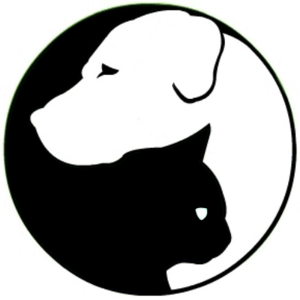; ?>/images/banner.jpg)
 I had a disappointing experience with local holistic practitioner some years ago who practiced only traditional Chinese Veterinary Medicine who – thank goodness as far as I am concerned – has been retired for a few years. I am both supportive of, and am fully on board with, the benefits of Chinese herbal medicine and acupuncture…but not the way this guy did it.
I had a disappointing experience with local holistic practitioner some years ago who practiced only traditional Chinese Veterinary Medicine who – thank goodness as far as I am concerned – has been retired for a few years. I am both supportive of, and am fully on board with, the benefits of Chinese herbal medicine and acupuncture…but not the way this guy did it.
My first experience with this doctor that I affectionately named Dr. Yin Yang was when a cat came in for chronic weight loss and ill thrift. The cat had been under treatment for what this doctor coined “Yin and Yang kidney disease” with a mix of herbal therapy and acupuncture for 18 months (this is where my nickname for this doctor came from). The cat continued to lose weight and it was becoming increasingly difficult for the owner to get him to eat despite ongoing treatment.
Upon review of the case, I learned that Dr. Yin Yang had never run one single diagnostic, but had based his diagnosis on inspecting the tongue and eyes. It is true that a certified and practiced traditional Chinese veterinary medical practitioners can tell a great deal from physical inspection of these anatomical structures, but there is no substitute for seeing quantitative blood chemistry, complete blood count, and urinalysis data at a minimum to assess the patient’s health.
I quickly figured out with just a few diagnostics that the patient had in fact healthy kidneys, but was suffering from slowly progressing gastrointestinal lymphoma. The owner opted out of pursuing chemotherapy, so I started the cat on an anti-cancer dosing of daily prednisone. The treatment restored that patient’s quality of life, she regained weight, and in order to prop her body to withstand the prednisone and fight the cancer, I put her on an anti-cancer nutritional and supplemental regimen as well. She lived another 18 months for the most part with excellent quality of life.
Just because a veterinarian and/or client may be holistically oriented does not mean that we should forgo invaluable diagnostics such as x-ray and ultrasound imaging, bloodwork, and urinalysis that provide essential health information about the patient. An impressive certified traditional Chinese veterinary medicine practitioner I recently interviewed on my podcast (episode player above) practices acupuncture and herbal medicine exclusively, discussed the importance of including routine diagnostics in her practice.
Traditional Chinese veterinary medicine, chiropractic, rehabilitation, and other alternative medical practices have tremendous value in veterinary health care. However, this approach must be augmented with the use of any and all modern diagnostics that we have at our disposal to properly assess the patient.
Dr. Roger Welton is a practicing veterinarian and well regarded media personality through a number of subjects and platforms. In addition to being passionate about integrative veterinary medicine for which he is a nationally renowned expert, Dr. Welton was also an accomplished college lacrosse player and remains to this day very involved in the sport. He is president of Maybeck Animal Hospital , runs the successful veterinary/animal health blogs Web-DVM and Dr. Roger’s Holistic Veterinary Care, and fulfills his passion for lacrosse through his lacrosse and sport blog, The Creator’s Game.
